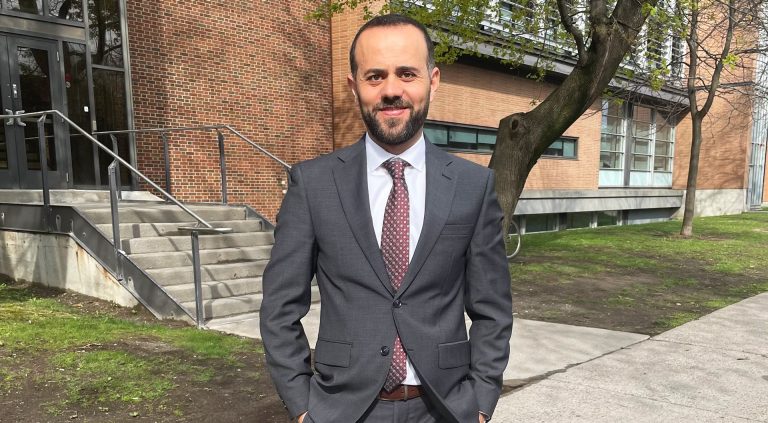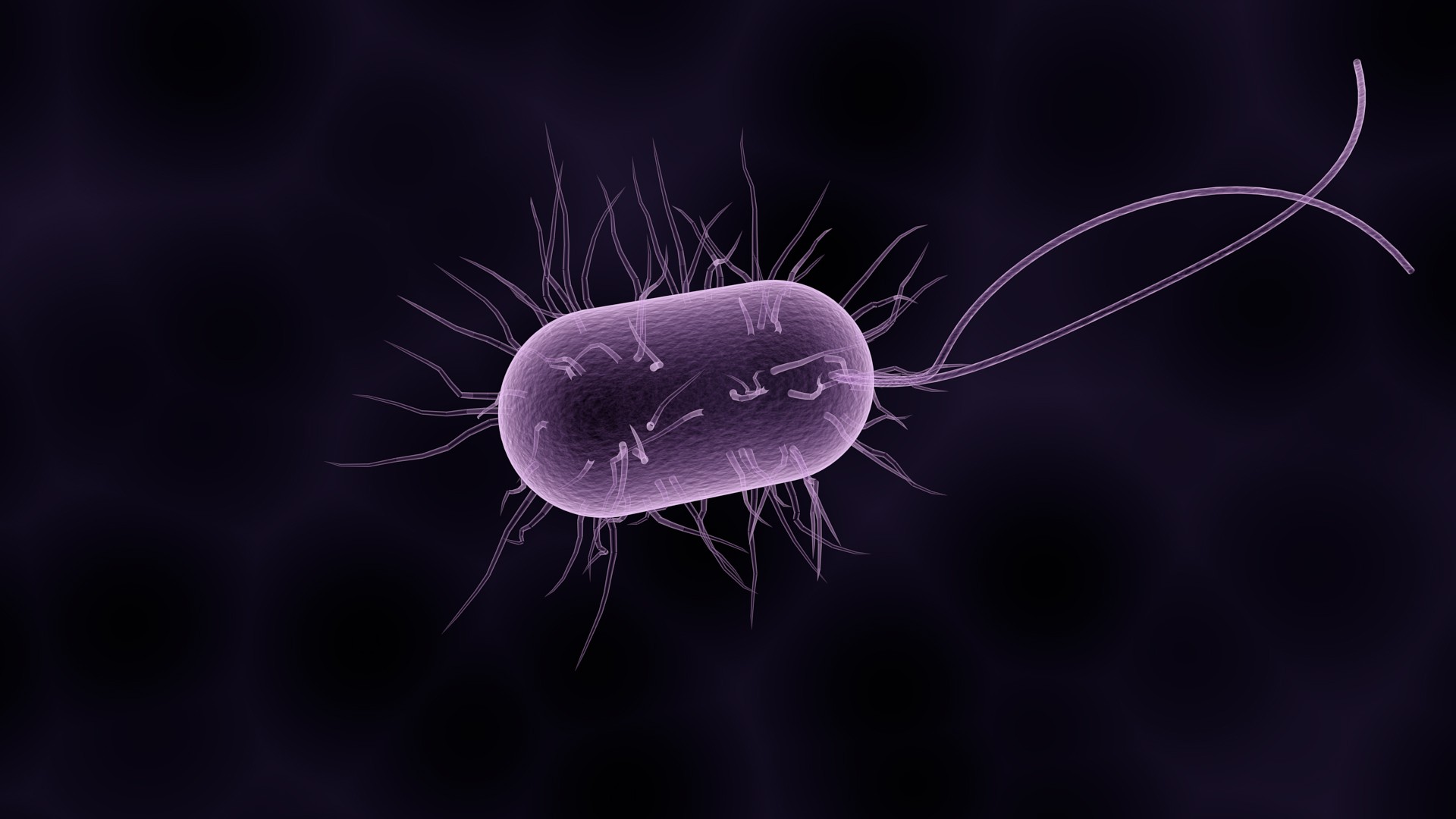Concordian is named a Lady Mireille and Sir Dennis Gillings Global Public Health Fellow

Concordian Hashem Almousa, PhD 23, has been selected for one of this year’s Lady Mireille and Sir Dennis Gillings Global Public Health Fellowships. The two-year fellowship grants young scientists the resources to undertake world-class public health research at the Institut Pasteur in Paris, France.
Fellows are also trained in leadership and management skills, enabling them to maximize the health impacts of their research.
Lady Mireille and Sir Dennis Gillings Global Public Health Fellows are available to PhD graduates from the University of Cambridge in the United Kingdom, the University of North Carolina Gillings School of Global Public Health in Chapel Hill and Concordia.
“These fellowships align perfectly with our commitment to conducting research with an impact,” says Effrosyni Diamantoudi, dean of Graduate Studies.
“It’s not enough to discover new knowledge, we need to create pathways for our research to be applied to solving society’s pressing challenges. Research, combined with entrepreneurship, paves the way for innovation that transforms lives and this program does exactly that.”
Almousa is the first Concordia Global Public Health Fellow. He is currently researching the cellular mechanisms behind rare neurodevelopmental diseases in young children.
After earning his Concordia doctorate in cell and molecular biology, Almousa began working alongside Philippe Bastin, head of the Trypanosome Cell Biology Lab at the Institut Pasteur, in July.
“I really appreciate the generosity of Lady Mireille and Sir Dennis Gillings in creating and funding this fellowship,” he says. Lady Mireille Gillings, DSc 22, is a Concordia graduate and received an honorary doctorate from the university in 2022.
“What’s so special about this fellowship is that it bridges the gap between science and business. It’s important that the next generation of researchers not only focus on science but effectively transform scientific knowledge into real-world applications.”
Understanding genetic disorders in young children
Almousa is studying a rare neurodevelopmental disorder that belongs to a group of disorders known as ciliopathies. Ciliopathies are caused by defects in the cell’s cilia, which are antenna-like organelles that extend from the surface of almost all cell types in the human body.
These tiny hair-like structures help cells communicate with each other and perceive the surrounding environment, among many other functions.
 Cilia are long, antenna-like organelles that extend from a cell’s surface.
Cilia are long, antenna-like organelles that extend from a cell’s surface.
However, genetic mutations in genes essential for the assembly or function of the cilia are related to a wide range of conditions collectively known as ciliopathies.
To better understand how genetic variation cause defects in cilia, Almousa is using a parasite called trypanosome as a model organism. The parasite is known to cause African trypanosomiasis, or sleeping sickness, in humans.
The parasite provides an excellent model to study human genetic diseases arising from defects in cilia because its flagellum (cilium) is structurally and functionally similar to the cilia found in human cells.
More specifically, Almousa is studying a gene that is involved in the transmission of signals and cargo from the top of the cilium to its base. Any mutations in genes involved within this transportation system are strongly linked to neurodevelopmental disorders and other ciliopathies.
“I’m very pleased to work with Dr. Bastin at the renowned Institut Pasteur, where they have state-of-the-art equipment and all the facilities that make my research possible,” Almousa says.
“I’m also very happy to have the opportunity to be trained in leadership and entrepreneurship in healthcare.”
Almousa says he hopes the fellowship will equip him with the tools to take his research from the lab to the market. He would like to eventually develop diagnostic strategies and potential treatments in collaboration with pharmaceutical companies.
“I’m passionate about a field of science that has a direct impact on the lives of many kids and their families,” Almousa adds.
“I’m studying rare neurodevelopmental disorders that most people don’t know about. In this context, it’s very important to draw people’s attention to these disorders, especially pharmaceutical companies.”
Learn more about the Lady Mireille and Sir Dennis Gillings Global Public Health Fellowships.
Discover other funding opportunities for postdoctoral fellows through Concordia’s School of Graduate Studies.


